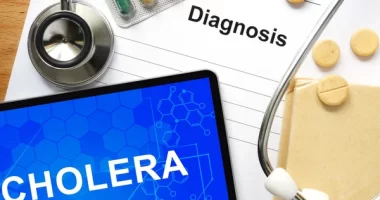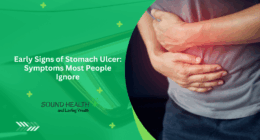Cholesterol is a waxy, fatlike substance that the liver produces. It’s vital for the formation of cell membranes, vitamin D, and certain hormones. However, having too much cholesterol in your blood stream can cause dire effects to one’s overall health. There are some obscure signs indicating your levels of cholesterol are becoming dangerous including pain in these four body parts.
Having high levels of cholesterol increases a person’s risk of heart disease.
Early signs to spot include:
- Angina, chest pain
- Nausea
- Extreme fatigue
- Shortness of breath
- Numbness or coldness in your extremities
- Pain in the neck, jaw, upper abdomen or back
A study published in the US National Library of Medicine National Institutes of Health, analysed the association between serum lipids and low back pain.
The study included adults between 40 and 64 years old who underwent an annual health check-up.
A total of 258,367 eligible participants were analysed to investigate associations of lower back pain with low-density lipoprotein cholesterol (LDL-C), high-density lipoprotein cholesterol (HDL-C), and LDL-C/HDL-C ratio.
The study found that low HDL-C and high LDL-C/HDL-C ratio were significantly associated with lower back pain indicating the pain felt in the back could indicate high cholesterol levels.
In another study, a case of abdominal pain and cholesterol ester storage disease was investigated.
The study said: “Cholesterol Ester Storage Disease (CESD) is an exceptionally rare dyslipidaemia with less than 150 cases reported in the medical literature.
“Patients with CESD often present with atypical complaints including abdominal pain, altered gut motility, colitis, and blood analysis usually showing abnormal liver function.
“Patients with Cholesterol Ester Storage Disease usually present with atypical complaints including abdominal pain from altered gut motility.”
Chest pain, especially on the left side indicates blockage of blood vessels around the heart and can cause pain, said Medicover Hospitals.
The health site continued: “Sometimes, the pain may even spread up to the neck.
“The high levels of cholesterol in the blood can cause chest pain and can also be a sign of heart attack.”
The American Heart Association recommends having your cholesterol levels checked every four to six years if you are a healthy adult over the age of 20.
If you have a family history of high cholesterol, it’s recommended to have it checked more often.
A person may also need more frequent cholesterol checks if they have a family history of heart attacks or strokes.
As high cholesterol does not cause any major symptoms in the early stages, therefore it’s integral for one to make good lifestyle choices by eating a healthy diet, maintaining an exercise routine and regularly monitoring cholesterol levels.
Post source Daily Express









Comments are closed.